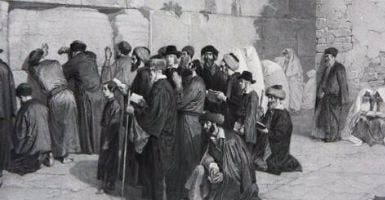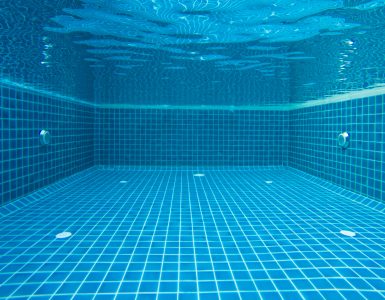Ki Tisa 5780
And Hashem said to Moshe: “Take for yourself spices – stacte, onycha and galbanum – spices and pure frankincense: These shall all be of equal weight. You shall make it into a spice-compound (Ketores), the handiwork of a perfumer, thoroughly mixed, pure and holy.” (Shemos 30:34-35)
The world today is in turmoil over the novel coronavirus (COVID-19) pandemic, and people everywhere are scrambling to protect themselves from contracting the disease. As Jews, we believe that nothing happens by chance and that this too is a decree from Hashem. Therefore, aside from taking the utmost care and following the instructions of the authorities, we must also engage in Tefila and other means of salvation revealed to us by Chaza”l.
The most potent antidote to plagues and diseases found in Chumash is the Ketores. This is recorded in Parshas Korach (Bamidbar 17:11-13):
Moshe said to Aharon, “Take the brazier and put fire from upon the Mizbe’ach on it and place Ketores – and go quickly to the assembly and atone for them, for the fury has gone out from Hashem; the plague has begun!” Aharon took [the brazier and Ketores] as Moshe had instructed and ran to the midst of the congregation, and behold! The plague had begun among the people. He stood between the dead and the living, and the plague was checked.
Although we can no longer avail ourselves of the Ketores, according to the Zohar (Parshas Vayera) we can still use its power to halt an outbreak:
…Eliyahu said to me: “When a plague breaks out among people, a covenant has been made and an announcement made to all of the Heavenly legions, that if His children will gather the Shuls of the land and say the Parsha of the Ketores earnestly and sincerely, the plague will be arrested. Said R’ Yitzchak, come and see that which is written in the Torah: “And Moshe said to Aharon, take the brazier… And he ran to the midst of the congregation… And the plague was checked” and the destructive angel was unable to take control and the plague was halted. It is explicit that the Ketores halts a plague.
Of course, in addition to the Segula of Parshas haKetores, we always have recourse to Teshuva, Tefila and Tzedaka to “remove the evil of the decree” and protect us from harm. These are the famous words of the Rambam in Hilchos Ta’anis (1:1):
There is a positive Mitzva in the Torah to cry out and sound the trumpets regarding any trouble that assails the congregation… such as famine, pestilence, locusts, or the like… Doing so is a manner of Teshuva, for when strife befalls them, and they cry out and sound the trumpets over it, everybody is aware that it is because of their evil deeds that it is happening to them, and it is written, “Your sins have overturned these” (Yirmiyohu 5:26). And this will cause the troubles to be removed from them. But if they neither cry out nor sound the trumpets, but rather claim, “This happening is the way of the world, and this difficulty is happenstance”, this is an attitude of cruelty and causes them to hold fast to their evil deeds and additional troubles will be added…
Furthermore, those who think that the plague will not affect them because of their age or location, are termed “sinners” by the Sefer Chasidim (753):
Since all Jews are responsible for one another, when trouble comes upon one of them, everyone should be distressed and Daven for them, as it says “As for me, when they were ill, my clothing was sackcloth” (Tehilim 35:13), and it is written “May my prayer return upon my own bosom” (ibid.). But he who does not Daven for another sins, as it says, “Far be it from me to sin against Hashem and refrain from praying on your behalf” (Shmuel I 12:23).
This is our primary obligation – to feel a responsibility for the welfare of all of the Jewish People and to Daven for an end to the outbreak of the disease.
However, the obligation of Hishtadlus is equally important, and we must take responsible steps to protect ourselves from contracting or spreading the disease. The Torah explicitly commands us to guard our health “VeNishmartem Me’od l’Nafshoseichem” (“you shall guard your souls greatly”) (Devarim 4:15), which includes the obligation to distance ourselves from any type of danger or disease. Those who neglect this responsibility are considered negligent and if they lose their lives due to their carelessness, Hashem holds them to account. The Gemara in Bava Metzia (107b) explains that the Posuk in Mishlei that states, “Thorns and snares are in the path of the perverse; he who guards his soul will distance himself from them” (Mishlei 22:5) refers to the excesses of temperature and requires a person to protect himself from extreme heat and cold.
Therefore, a person must, for example, ensure that he dresses warmly during the winter and take appropriate steps to avoid contracting any other disease or illness. However, the steps recommended by the authorities to avoid contracting COVID-19 appear excessive, such as washing hands constantly and extensively, refraining from shaking hands and personal contact, and avoiding travel, among other extreme recommendations. Above all, the Israeli government has insisted that anybody returning from abroad self-quarantine for two weeks!
Are these steps required by Halacha? Regarding avoiding infection – is the level of danger high enough to warrant these extreme measures? Regarding self-quarantine – is the likelihood that the people involved carry the disease and will infect others strong enough that we can reasonably obligate people to intern themselves in their homes for a full fortnight?
The response of contemporary Poskim these questions is unanimous: Everybody is obligated to abide by the instructions issued by the health ministry. They offer several reasons:
In general, Halacha recognizes the authority of medical professionals to determine what comprises a risk to health and how people should conduct themselves in circumstances of illness or disease. A person cannot decide these matters on his own. He must turn to medical professionals for advice, not merely because of the duty to abide by the law of the land (“Dina d’Malchusa Dina”) but because in all matters of danger to life, a person must be even more vigilant than he would in matters of regular Halacha (“Chamira Sakanta me’Isura”). Just as he would not think of issuing rulings in matters of Halacha, he certainly should not make his own decisions in medical matters.
Moreover, the rule of Chamira Sakanta me’Isura obligates a person to take all possible measures to avoid danger to himself or others. Therefore, he must strictly adhere to the guidelines of medical professionals in every situation.
An example of the conduct expected of a person to avoid contracting infection diseases can be found in the Gemara in Kesubos (77b). The Gemara discusses a highly infectious disease of the skin called “Ra’asan” and the extreme measures taken by various Amoraim to avoid being infected. R’ Yochanan would avoid any flies that had come into contact with a person suffering with Ra’asan (as they transmit the disease). R’ Zeira would not stand downwind of a bearer of Ra’asan, and R’ Elazar would not enter his room. R’ Ami and R’ Asi would not even eat the eggs from the street on which he lived!
Another factor is that matters that affect the general public are always viewed more stringently than those which only affect individuals. In the case of COVID-19, many of the guidelines issued by public health officials are intended to control the spread of the virus in the community and not just to protect individuals. Likewise, in Halacha, we sometimes consider things that relate to the public as matters of Pikuach Nefesh, even though they would not be treated as stringently for individuals.
For example, hospitals have strict protocols that are designed to prevent danger to the public. A patient’s personal physician might recommend that his patient not undergo a specific treatment or diagnostic procedure because the chances that he will be endangered are low. Nevertheless, the hospital, as a public institution must enforce more stringent criteria.
Another example is vaccination against influenza. The health ministry, as a public agency, must take the stance that the vaccine is imperative (and perhaps even allocate funds to provide it to the entire population), else many will be endangered. However, a person’s personal physician may advise him that it isn’t necessary for him as his risk is low.
The same is true of COVID-19. The authorities have based their recommendations on the fact that this disease is affecting the public at large and have been accordingly stringent. The public, for their part, must abide by their recommendations. HaGaon Rav Asher Weiss Shlit”a notes that the same approach was taken by R’ Yisrael Salanter zt”l during the cholera plague in Europe of the end of the 19th century. He ruled that all members of his community, including the healthy ones, should eat and drink on Yom Kippur in order to prevent the spreading of the plague. Many disagreed with his conclusion, thinking it too lenient, but it certainly demonstrates the degree to which a danger to the general public is accorded significance.
This concept can be derived from several sources in Chaza”l[1]:
The Gemara in Nedarim (80b) cites a Tosefta (Bava Metzia 11) that discusses two neighboring towns, one of which has the rights to the waters of a nearby spring. The Beraisa discusses the degree to which the town with rights to the spring must allow the other town access to it, and R’ Yose says that the town’s need for laundering its residents’ clothes takes precedence over the other town, even at the expense of its residents’ lives.
The Achiezer (2:23:2), however, holds that R’ Yose would certainly not countenance endangering the life of the people of the other town just so the first town may launder their clothes. Rather, the Tosefta must be speaking of a case where the other town would be able to procure water from elsewhere, just at great inconvenience. The Ran (ibid.) and the Beis Shmuel E.H. 80:15, on the other hand, rule in accordance with R’ Yose even where the other town will be left without drinking water.
R’ Yose would definitely agree that if two people are traveling in the desert, one cannot use his own water to wash his clothing instead of providing drinking water to his companion who would otherwise die of thirst. Therefore, he must hold that the inability of the public to wash its clothes would be considered Sakanas Nefashos, and therefore they are not obligated to give up their own water to the neighboring town. This indicates that the health and safety needs of the public have greater weight compared to an individual in terms of Pikuach Nefesh.
There is another instance where Chaza”l seem to attach greater significance to dangers posed to the public than to an individual in the Gemara in Shabbos (42a). Shmuel rules[2] that one may extinguish a piece of burning metal (a Gacheles) on Shabbos if it is lying in the public domain and someone might be injured or damaged by it.
Rashi (and other Rishonim) explains that the reason that one may extinguish the Gacheles to save the public from damage is because doing so is only an Issur d’Rabbanan. However, the Rashba and the Ran cite the Ba’al Halachos Gedolos (the Beha”g) appears to hold that doing so is in fact an Issur d’Oraisa and is nevertheless permitted because of the danger to the public.
The Ran asks – how can the Beha”g understand that Shmuel would permit an Issur d’Oraisa in the absence of actual Sakanas Nefashos? He answers that “any danger to the public is considered like Sakanas Nefashos”.
From the words of the Ran it seems that we relate to danger posed to the public differently than to that posed to an individual. There may be cases where, objectively speaking, no Sakanas Nefashos is involved, but if the public may be affected, we demand a level of vigilance that renders even a small danger as Sakanas Nefashos, so much so that we will even violate an Issur d’Oraisa.
The same is true in our case – the fact that COVID-19 impacts the entire public means that we must consider it a matter of genuine Pikuach Nefesh even at the individual level.
This was also the conclusion of haGaon Rav Asher Weiss Shlit”a, in his letter of 9 Adar 5780, entitled, “Limno’a Mashchis uMagefa” (“To Prevent Destruction and Plague from Assailing Us”):
Regarding the question of the public as to how one should conduct oneself with regard to coronavirus – my opinion is that it is obvious that one must pay careful heed to all of the instructions of the medical authorities. Those who are instructed to self-quarantine shall not leave their homes even to perform a Mitzva. Chaza”l and the Gedolei haDor of generations past were exceedingly stringent with regards to plagues, as evident from the Gemara in Kesubos (77b) regarding Ra’asan, and from the ruling of Rav Yisrael Salanter regarding the outbreak of cholera that even the healthy were to eat on Yom Kippur. There are many other examples. The same applies to this disease which is exceedingly contagious and highly dangerous and has already brought the deaths of many.
It is important to intensify efforts in Teshuva, Tefila and Tzedaka that will remove the evil of the decree.
“Avinu Malkenu,
withhold the plague from your heritage”, and fulfill the Posuk of “and I will
remove sickness from among you”.
[1] See our essay on Parshas Acharei Mos 5779 (“Pikuach Nefesh of the Community and Individual”) for a more extensive discussion of this Sugya. https://bit.ly/2vasGQq
[2] The Rambam (Shabbos 12:2) and Shulchan Aruch (O.C. 334:27) rule accordingly.














